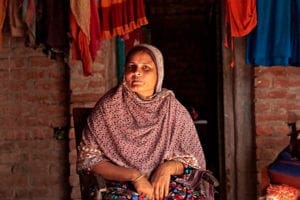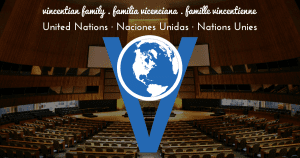
The 62nd Session on the Commission on the Status of Women is currently being convened from March 12-23. The largest UN gathering on gender equality, member governments are working together on the theme of “Challenges and opportunities in achieving gender equality and the empowerment of rural women and girls.” With the seventeen Sustainable Development Goals in mind, general discussions, high level panels, hundreds of focused side events, and the great presence of civil society are all geared to governments negotiating and agreeing on conclusions in a final document at the close of this session.
A brief overview of the challenges affecting rural women follows:
“She works from daybreak until sundown, and often beyond. She tills the land and grows the food that feeds families and nations, but often without land rights, or equal access to finances and technology that can improve her livelihood. She is working as hard, or more, as the man next to her, but have less income. She has much to contribute, but will her rights, voice and experience shape the policies that affect her life?” (http://www.unwomen.org/en/news/in-focus/csw)
 Rural women often ensure food security for their communities, yet inequalities such as discriminatory laws and cultural norms leave them further repressed, exacerbated by fast –changing economic, technologic, and environmental factors. They are left far-behind men and urban contemporaries. While agriculture remains the most important employment sector for women in developing countries and rural areas, they are part of an informal economy with little or no social protection, legal or labor rights. As a consequence, rural women have lower standards of living, poorer wages and health, limited access to services, no future or voice.
Rural women often ensure food security for their communities, yet inequalities such as discriminatory laws and cultural norms leave them further repressed, exacerbated by fast –changing economic, technologic, and environmental factors. They are left far-behind men and urban contemporaries. While agriculture remains the most important employment sector for women in developing countries and rural areas, they are part of an informal economy with little or no social protection, legal or labor rights. As a consequence, rural women have lower standards of living, poorer wages and health, limited access to services, no future or voice.
Land ownership, the heart of a farmer, is an option available to less than 13% of rural women. Usually because of a patriarchal culture, land ownership is passed to other males, even upon the death of a husband. This lack of ownership results in less income security, less decision-making powers in the household or communities, inability to access credit. It is not unusual within some cultures, for a woman to become homeless when her husband dies.
A rural woman is 38% less likely to give birth with the help of a health care worker than urban women in low income areas, with increased chance of life-threatening complications, bleeding, infection and even death.
Only 20% of the rural population has access to fresh water. Women and girls are often responsible for fetching water for the community in rural areas. Some must walk great distances. This task can take all day, posing a barrier for girls to attend school with any regularity or women to seek other employment. This responsibility imposes higher risk of maternal mortality, domestic violence, physical danger and psychological stress.
Child marriages occur more frequently in rural settings. A rural girl is twice as likely to be forced into an early marriage than her urban counterparts in some African, Latin American and Caribbean countries. The consequences are the end to any hope of education or employment, greaster risk of intimate partner violence, early pregnancy and exposure to STD’s including HIV.
More than half of all poor rural women lack basic literacy skills This creates a barrier to employment and decision-making, lower income, lower-quality jobs, greater health risks, decreased well-being.
Most of the four billion people not connected to the internet tend to be poorer, less educated and rural women and girls. The consequences of this is the limited means of acquiring new skills, information and knowledge, decreased livlihoods and limited economic opportunities.
UN Women summarizes the requirements for empowering rural women and girls:
- Decent work and social protection
- Education and training
- Sustainable energy and technology
- Clean water and sanitation
- Eliminating violence and harmful practices
- Increasing women in decision-making and leadership
- Increasing women’s climate resilience
Agreed conclusions will be forthcoming this week and a final document will be produced.
Natalie Boone is the AIC NGO Representative to UN-NY








0 Comments